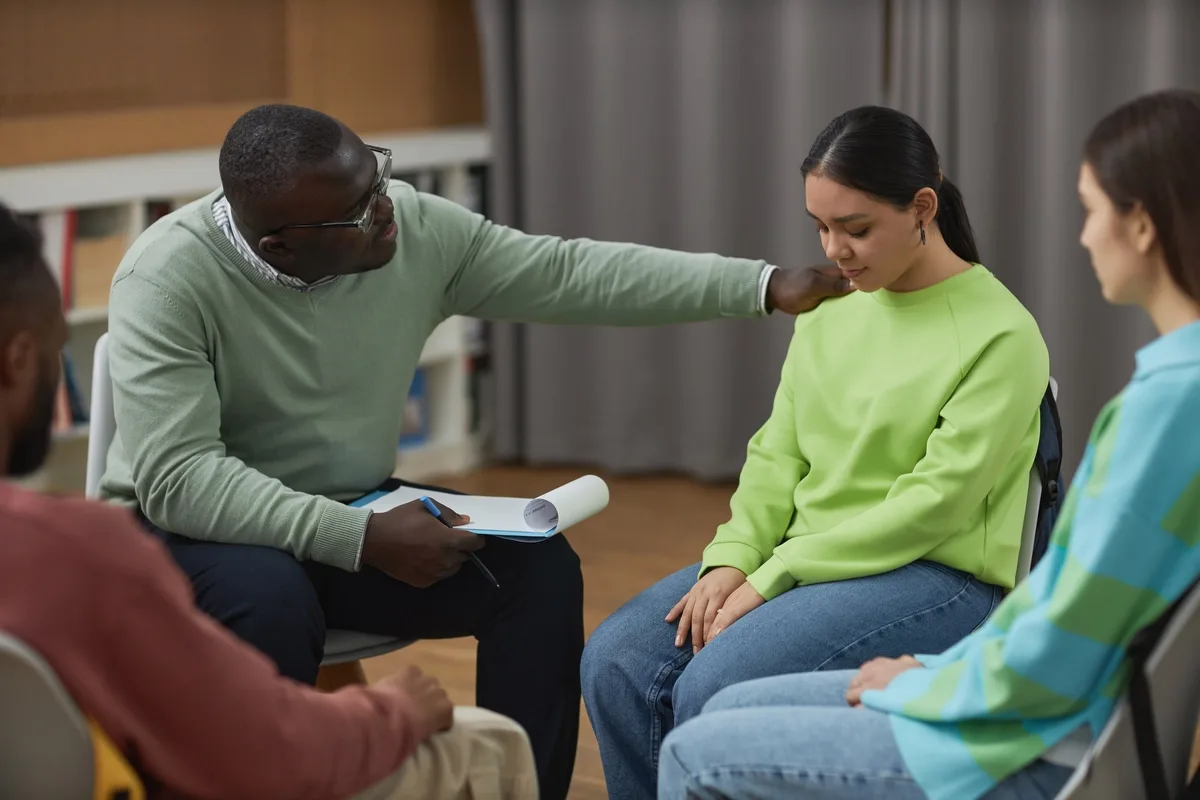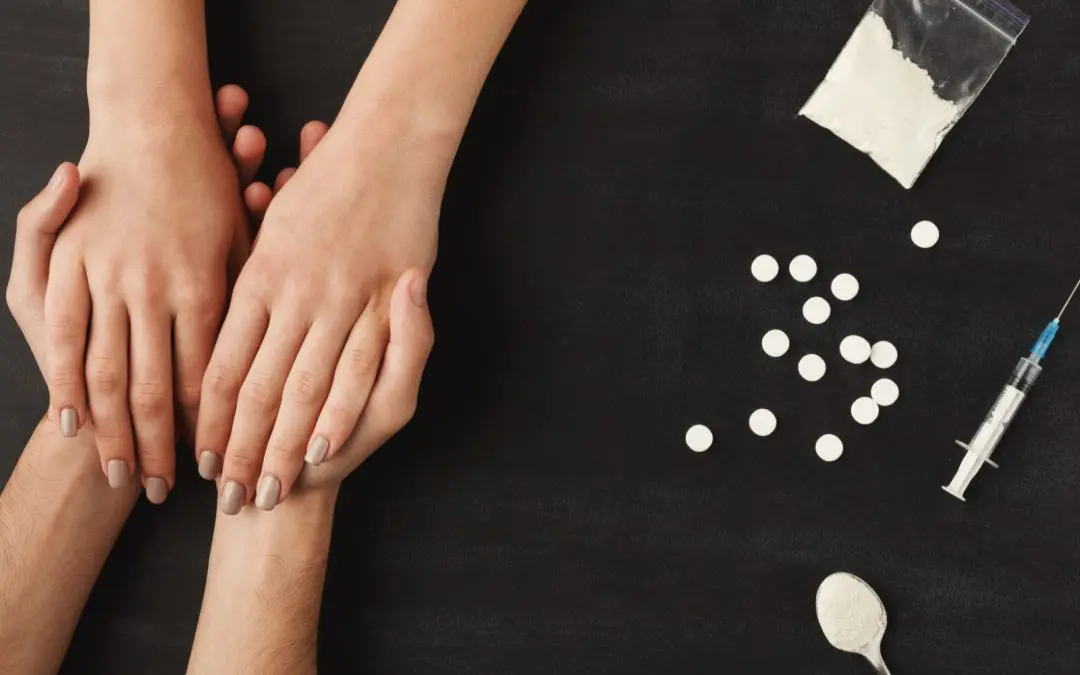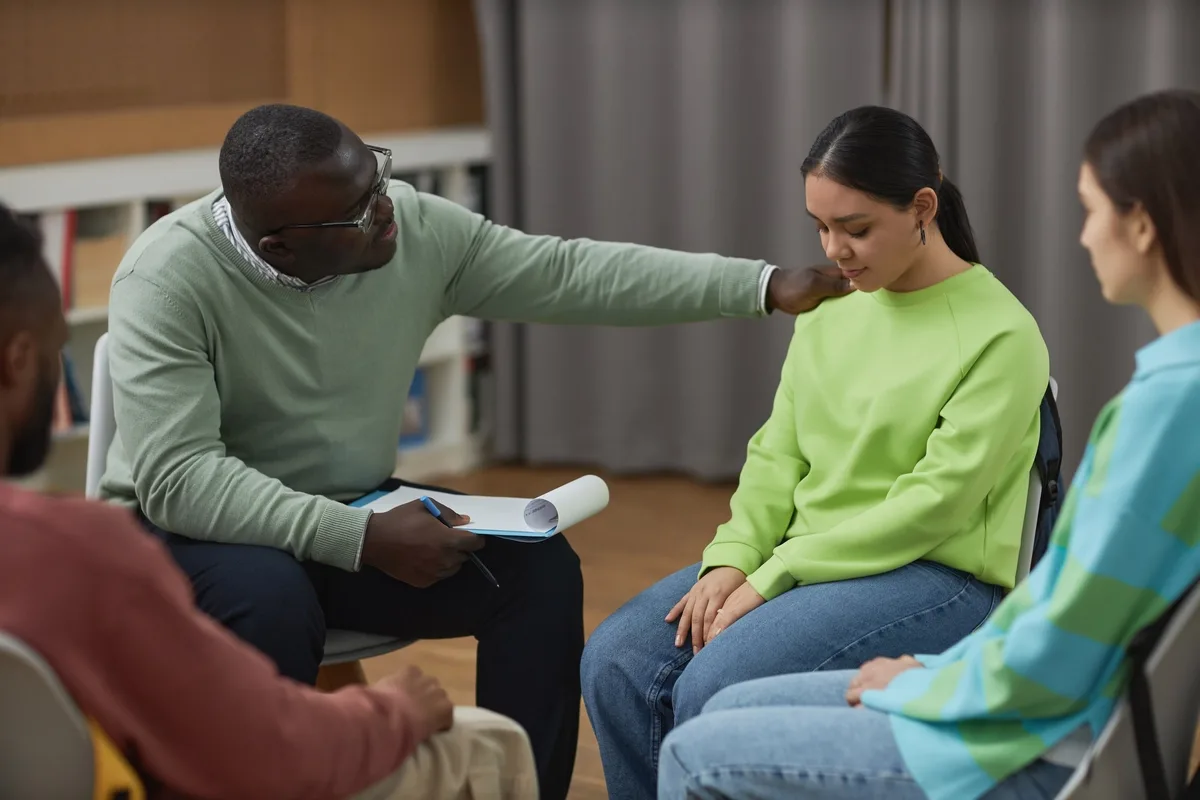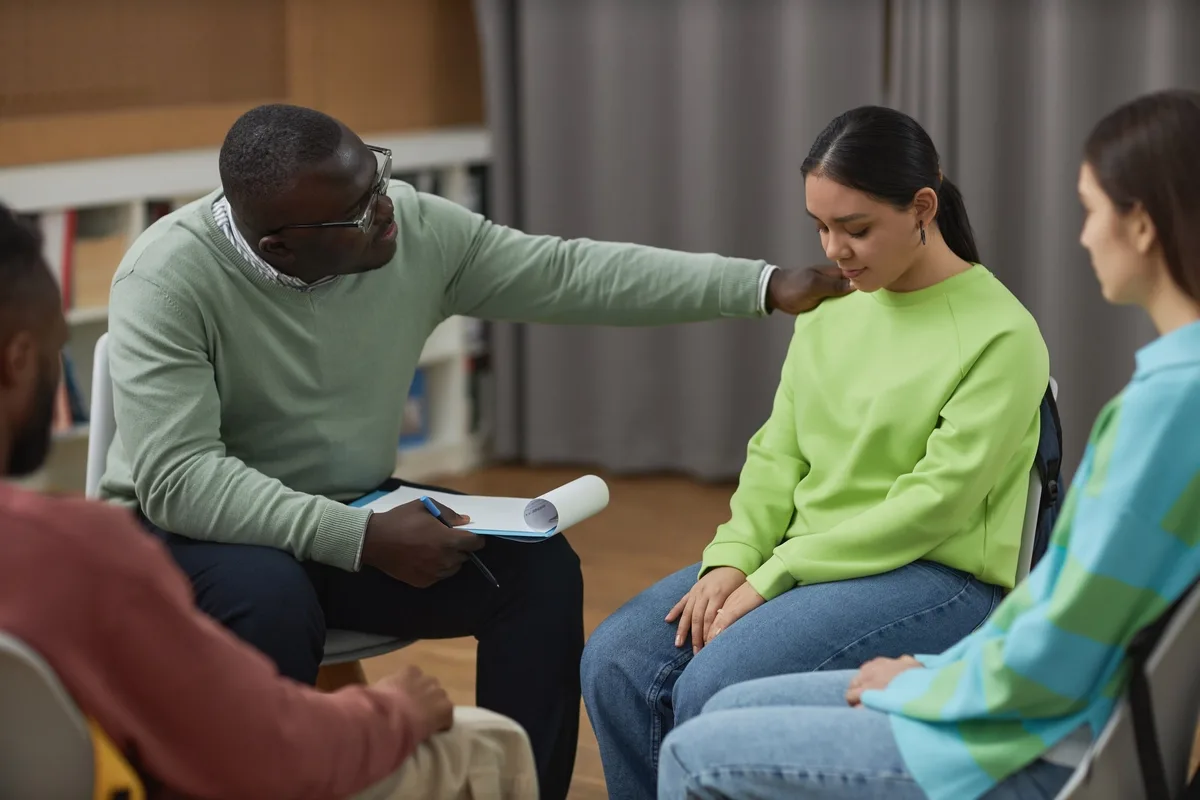24/7 Helpline:
(866) 899-221924/7 Helpline:
(866) 899-2219
Learn more about Bipolar Disorder Treatment centers in Rapides County
Bipolar Disorder Treatment in Other Counties

Other Insurance Options

Medical Mutual of Ohio

Horizon Healthcare Service

Ambetter

Humana

MHNNet Behavioral Health

Carleon

Premera

Regence

Health Partners

Health Choice

Ceridian

State Farm

BHS | Behavioral Health Systems

Absolute Total Care

Optima

Multiplan

WellCare Health Plans

Amerigroup

Access to Recovery (ATR) Voucher

Lucent

Edgefield Recovery Center
Edgefield Recovery Center is a drug and alcohol rehab center located in Cheneyville, LA. They provid...

Healing Springs Ranch
Located in Tioga, Texas, Healing Springs Ranch is a center for treating addiction and mental health ...








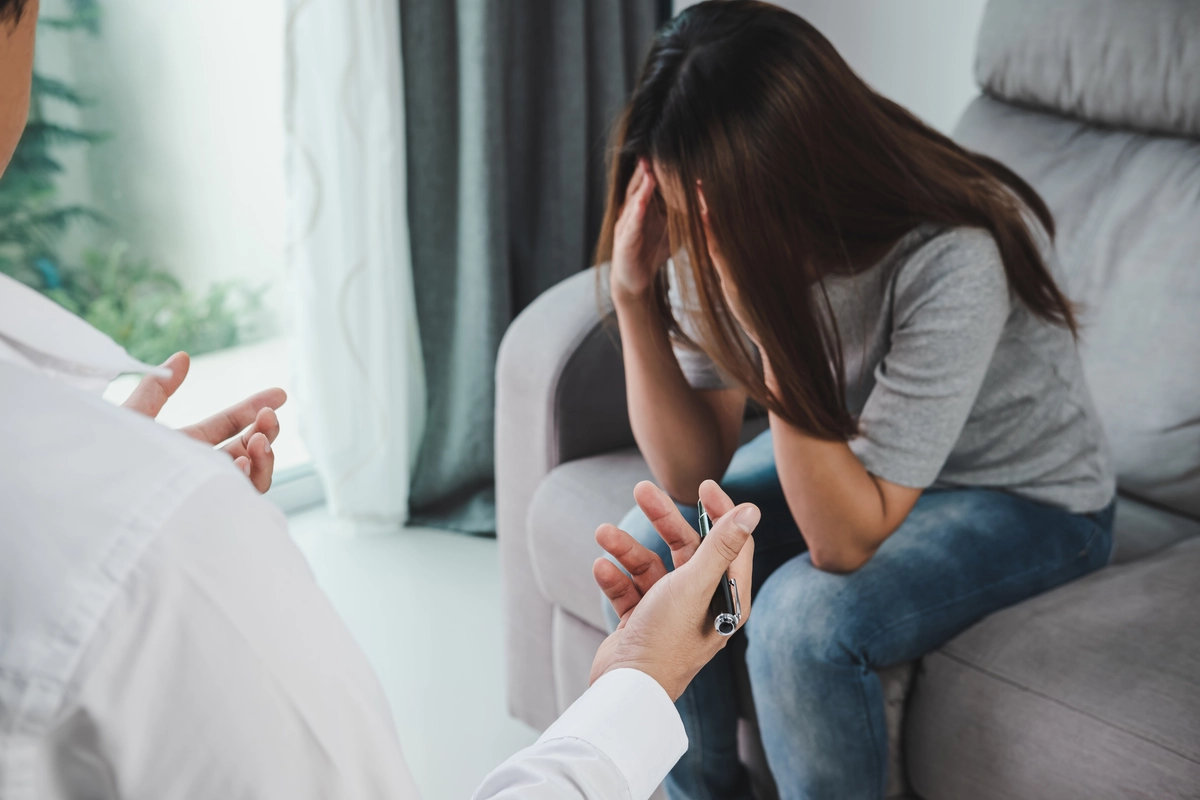








Dellwood Recovery Center
Dellwood Recovery Center is a private rehab located in Mora, Minnesota. Dellwood Recovery Center spe...

Serenity Manor
Serenity Manor is a private rehab located in Mora, Minnesota. Serenity Manor specializes in the trea...

New Mexico Behavioral Health
New Mexico Behavioral Health is a public rehab located in Mora, New Mexico. New Mexico Behavioral He...











































































































































































